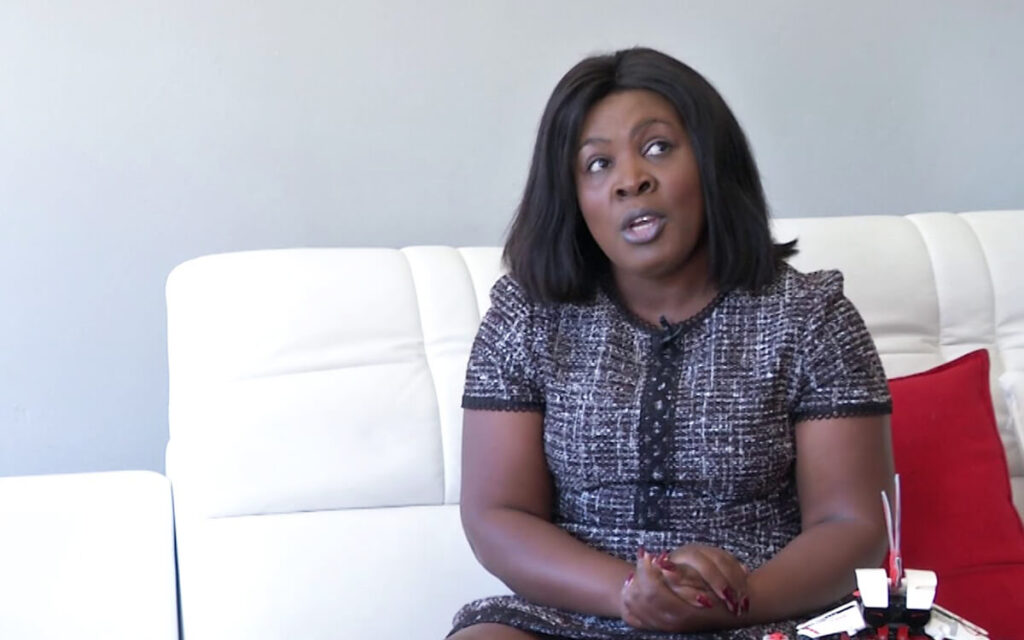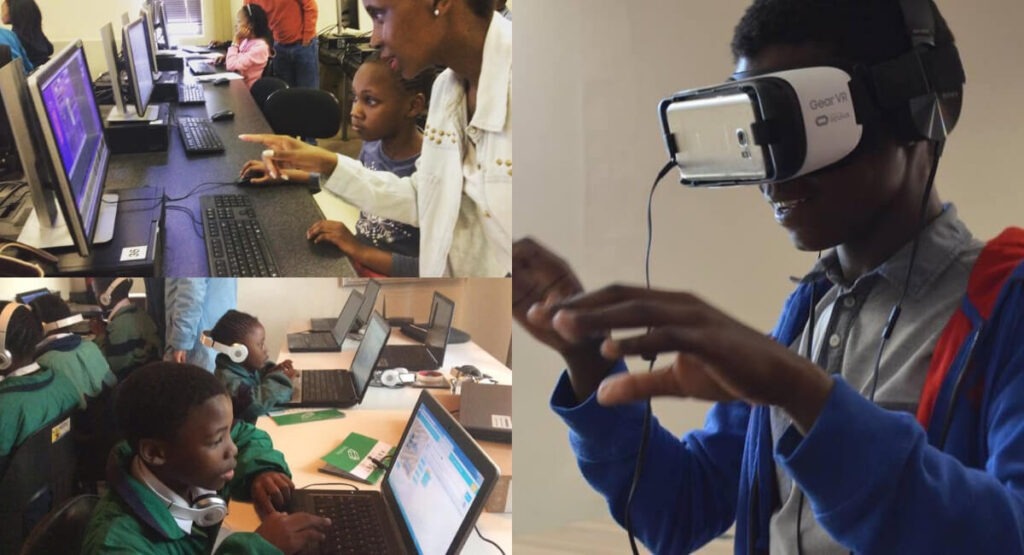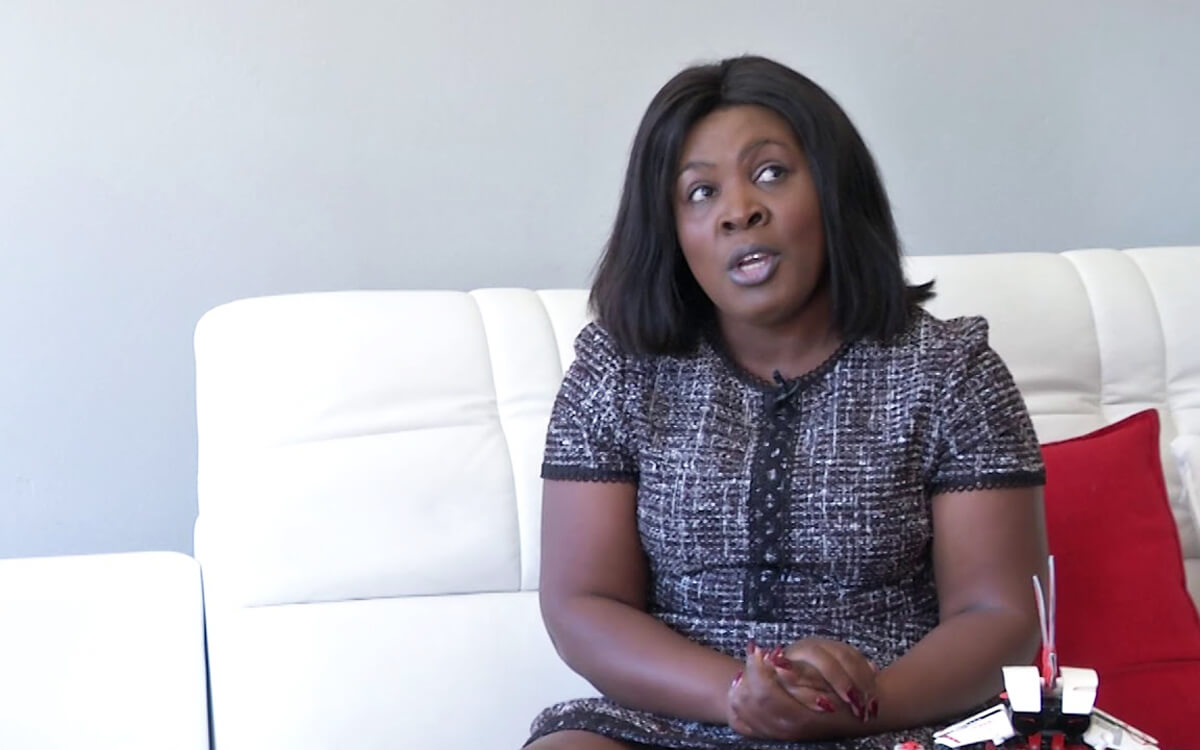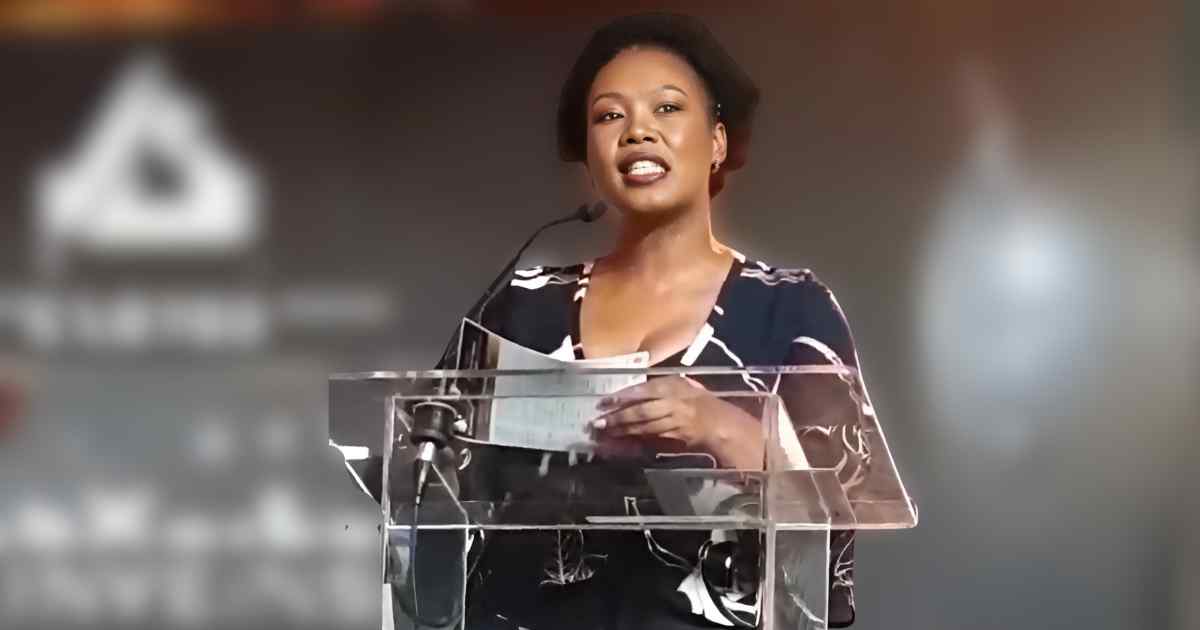
Years ago while attending a conference in the United States, Lindiwe Matlali saw an eight-year-old girl present an app she had built. This moment would inspire her mission to take tech education to South African youth.
Matlali told TimesLive that the experience made her wonder why this wasn’t happening in South Africa. “Computer codes are the backbone of the modern world,” she says.
Matlali, who was already running her own VR studio, Apodytes, researched computer science education in South Africa and uncovered why.
“I learned that information technology was only taught from Grade 10 and only in affluent schools,” she told Global Citizen. Her research also uncovered that children from wealthy families are more likely to be innovators and that if a child meets an innovator, they are more likely to grow up and be innovative too.
Africa Teen Geeks
Guided by the mission that no child be left behind in the tech revolution, Matlali founded Africa Teen Geeks (ATG) in 2014 – a non-profit organisation that provides coding lessons to school children and unemployed youth. The organisation also hosts workshops, hackathons and community outreaches.
“Many children from [the] townships do not have an opportunity to learn even basic computing, let alone coding. They are also not exposed to the awesome opportunities technology provides.
“I want to expose these kids to innovators so that they can be inspired, raise their aspirations, and break the cycle of poverty and disadvantage.
“My goal is to expose them to computer science, helping to inspire Africa’s future generation of technology entrepreneurs and innovators,” she says.
Technology skills are also key for the jobs of the future, says Matlali.
“Ninety percent of the technology jobs we have [now] didn’t exist 10 years ago – jobs from social media to data science,” she told She Distinction Blog.
“In fact every profession requires some sort of technology literacy; teachers, social workers, and doctors all use technology. If we want to prepare our kids for industries and jobs of the future, we need to ensure that they are technology savvy. At African Teen Geeks, we have a special focus on girls because only 20% of ICT professionals in South Africa, for example, are women.”
Today the organisation has grown to be one of Africa’s largest computer science NGOs in four years. They have reached over 48,000 children and recruited over 1,300 volunteers. Matlali was also selected to join the Presidential Commission on the Fourth Industrial Revolution (4IR).
Africa Teen Geeks’ projects include Saturday classes in partnership with the University of South Africa (Unisa), the Girl Geek Programme which trains young girls to be future women in STEM and the teacher training programme in collaboration with the department of education.
Last year Africa Teen Geeks signed a Memorandum of Understanding with the Department of Education to develop and implement the coding and robotics curriculum for grade R-9.
As part of the programme, 48,000 teachers will be trained in the next five years to equip them with the necessary skills to teach the curriculum. The curriculum, designed specifically for the South African market, will focus on the ‘E’ in STEM (Science, Technology, Engineering, Mathematics).

Creating a different narrative
Matlali and her siblings grew up orphans and were raised by their grandfather. She says her grandfather was the one that taught her the value of education.
I am driven by my goal to make him proud and show the world that an orphan raised by a pensioner and a gardener could rise and study at some of the best universities in the world.
In an interview with She Distinction, Matlali says her upbringing made her want to change perceptions people have about growing up in difficult circumstances.
“I hate it when people feel sorry for me and my whole life as an orphan people felt that they had to feel sorry for me.
“I was driven to work hard so that people would recognize my abilities and achievements, rather than my status as an orphan.”
She adds: “My being an orphan drove me to create a different narrative of how I was labelled and described.”
Matlali earned a B.Com. degree in Economics and Statistics at the University of Cape Town and went on to obtain a General Management Programme Certificate in Innovation and Entrepreneurship at the Stanford University. She is currently pursuing a MS in Technology Management from Columbia University in New York.
Inspiring woman in tech
For all her work, Matlali has received multiple accolades. Queen Elizabeth II recognised Matlali at the 86th Commonwealth Point of Light for her exceptional voluntary service in South Africa providing technology education to youngsters.
Other awards include the MTN Women in ICT Community Builder Recognition Award 2018 and being selected for the Fairlady/Santam Social Entrepreneur for 2018.






